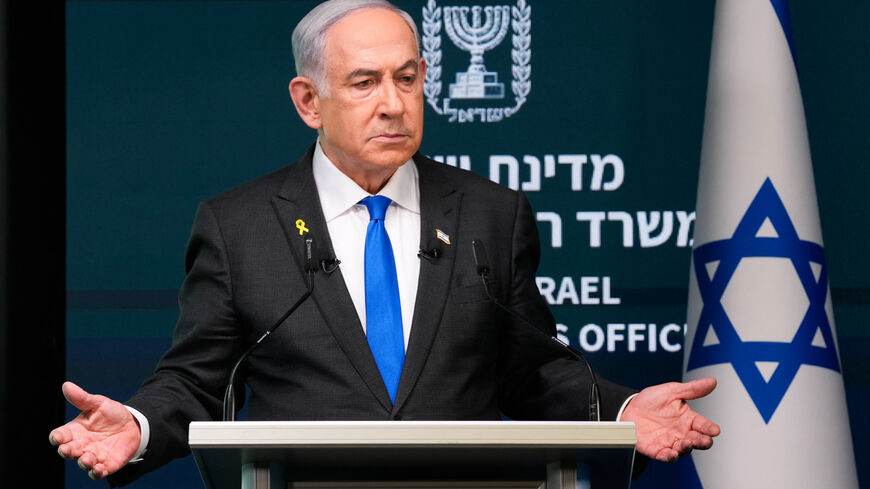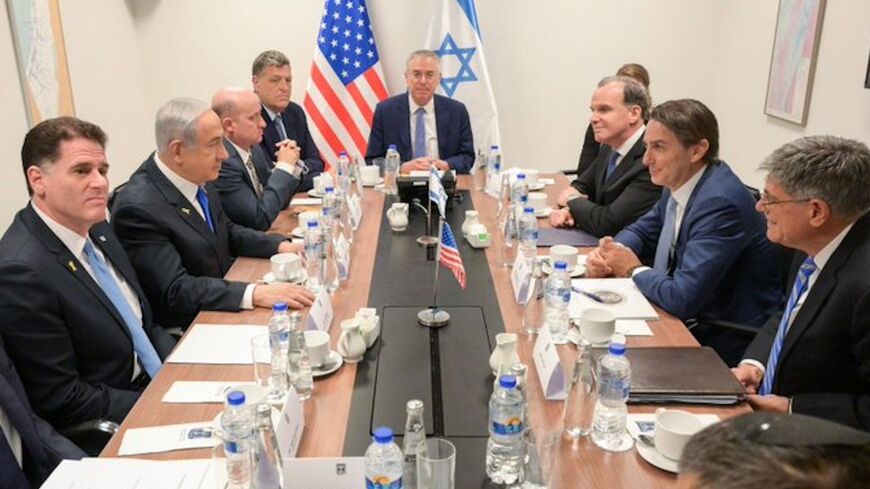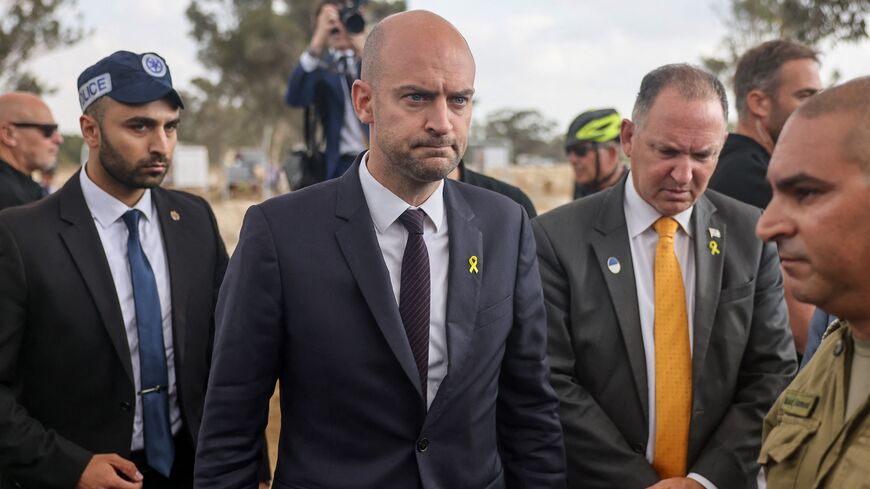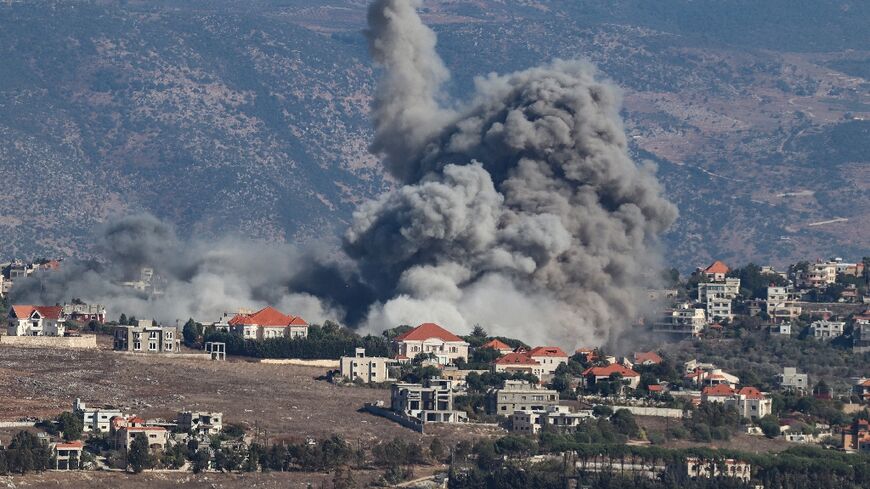Netanyahu softens position, says Israel discussing US-France cease-fire plan in Lebanon
On Thursday, Prime Minister Benjamin Netanyahu said Israel will continue battling Hezbollah, but on Friday he indicated Israel will continue talks with the United States over a possible cease-fire in Lebanon.

After stating Thursday that the Israeli military would continue fighting Hezbollah in Lebanon with "full force," Prime Minister Benjamin Netanyahu said Friday that the government is engaged in talks with the Biden administration over its proposal for a temporary 21-day cease-fire in Lebanon.
The proposal, released late Wednesday evening in coordination with France, nine other nations and the EU, came just hours after Israel's army chief, Lt. Gen. Herzi Halevi, said ground forces were preparing for "possible entry" into Lebanon.
On Thursday, after landing in New York ahead of his speech to the United Nations General Assembly set for Friday, Netanyahu told reporters that Israel’s "policy is clear. We are continuing to strike Hezbollah with full force. And we will not stop until we achieve all our goals, chief among them the return of the residents of the north securely to their homes.”
While appearing to initially dismiss the US-French proposal, in statement released late Thursday, Netanyahu's office said, "Due to a lot of misreporting around the US-led ceasefire initiative, it is important to clarify a few points."
The statement added, "Israel shares the aims of the US-led initiative of enabling people along our northern border to return safely and securely to their homes. Israel appreciates the US efforts in this regard because the US role is indispensable in advancing stability and security in the region."
According to the statement, Israeli and American teams met Thursday to discuss the initiative, which should enable the opening of talks between Israel and Hezbollah for a comprehensive agreement that would enable the evacuated Israeli residents of the north to return home, and perhaps also the re-launching of talks between Israel and Hamas.
The prime minister's backtracking came after the White House revealed that the initial proposal had been coordinated with the Israelis.
When asked by a reporter Thursday whether Netanyahu's comments were a reversal or dismissal of their previously coordinated stance, National Security Council spokesman John Kirby responded, "I think you ought to ask that question to Prime Minister Netanyahu."
Strategic Affairs Minister Ron Dermer, a close associate of Netanyahu, met Thursday first with US special envoy Amos Hochstein and senior White House official Brett McGurk, and later that day with Secretary of State Antony Blinken.
State Department spokesperson Matthew Miller said after the meeting that "the Secretary discussed [with Dermer] the importance of reaching an agreement on the 21 day cease-fire across the Israel-Lebanon border ... and a diplomatic settlement that will allow civilians on both sides of the border to return to their homes," adding that Blinken "underscored that further escalation of the conflict will only make that objective more difficult."
Yet in his address to the United Nations General Assembly on Friday, Netanyahu did not mention the French-American proposal now on the table.
Israel must defeat Hezbollah in Lebanon, argued Netanyahu. "Israel has tolerated this intolerable situation [of Israelis evacuated from the north] for almost a year. I’ve come here to say, enough is enough. We won’t rest until our citizens return safely to our homes," he said, adding that "as long as Hezbollah chooses the path of war, Israel has no choice, and Israel has every right to remove this threat and return its citizens to their cities, and that’s exactly what we are doing."
"We will continue degrading Hezbollah until all our objectives are met," pledged Netanyahu.







